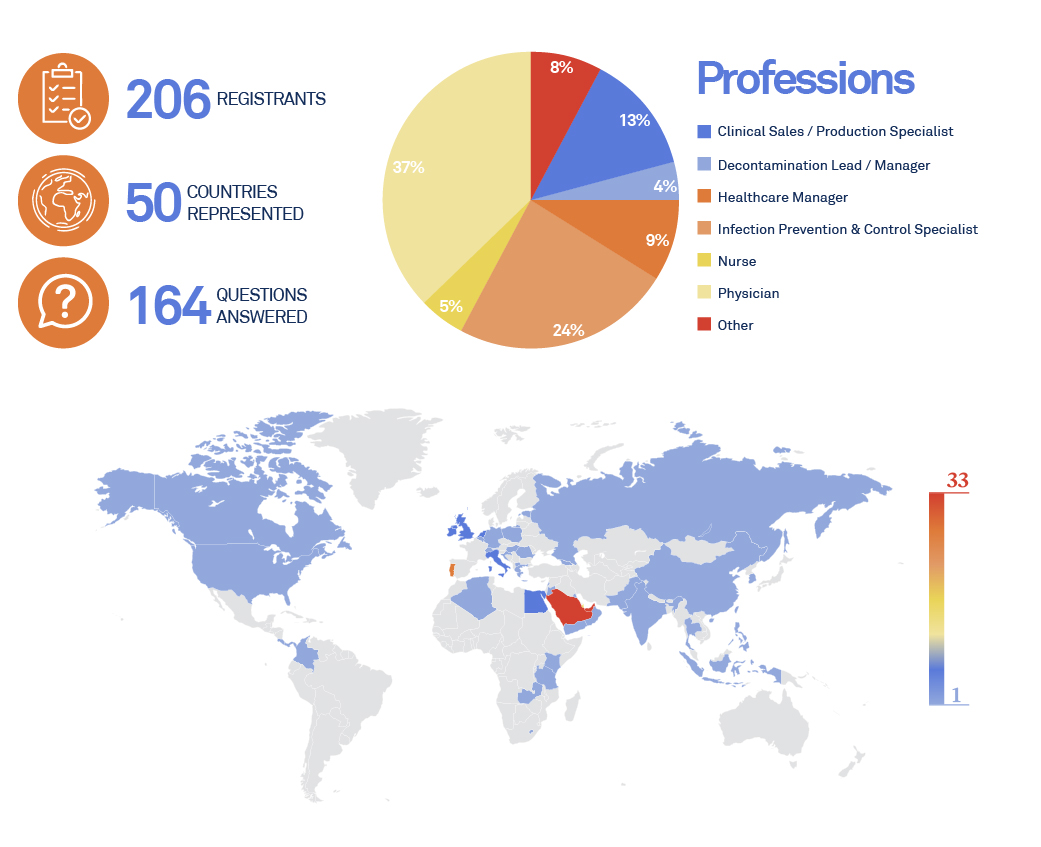
During the fifth webinar, Victoria McCreanor MSc, PhD. will talk about climate impact of health care and health economic evaluation, as well as sterilizer and instrument factors.
When considering which sterilizer is right for a particular setting, there is more to think about than the up-front costs of the sterilizer system itself. A comprehensive evaluation should assess longer-term costs and benefits of different options, including environmental considerations, in different settings. This presentation will cover an overview of climate considerations and carbon emissions healthcare, an introduction to health economic evaluation concepts, factors related to the sterilizer system, the instruments/devices being sterilizer and wrap up with how to use these concepts to evaluate different products.
The effects of climate change are being increasing seen, globally. Traditionally, evaluation of healthcare services and technology has not included information about carbon emissions or other environmental factors. The climate footprint of healthcare has been estimated to be equivalent to 4.4% of global net emissions. Figures vary across countries but are estimated to be 5.4% of emissions in the UK (5.4%), 5.1% for Australia, and 7.6% for the USA. This section will give an overview of climate and carbon emission considerations in healthcare and its evaluation.
Health economic evaluation is about understanding the costs and effects of a healthcare service such as a new treatment or intervention. The same principles can be applied to different contexts. The key factors to consider are:
- Costs related to each of the treatments/services being compared
- Benefits of each of the treatments/services being compared
- Appropriate timeframe for analysis
- Uncertainty in estimates of costs and benefits, and any other limitations
This section will focus on the key aspects of different sterilization systems that are relevant to the analysis. These aspects included up-front costs of the sterilizer system, ongoing costs such as sterilizer products, electricity, water. Other key factors include capacity and cycle length, waste and environmental considerations.
The next section will focus on the key aspects of the instruments being reprocessed. Much of this will be context specific, but this section of the presentation will highlight the types of factors to be considered such as how delicate the instruments are – including their susceptibility to damage from high temperatures and or water. It may also be important to consider how frequently items are used and how fast the turnaround time needs to be. Other key considerations include effect on need for repair or replacement of instruments and environmental considerations.
The final section of the presentation will bring together the sterilizer factors and instrument factors and demonstrate how to quantify water, electricity and consumable use, and associated costs, as well as the impact on instruments and need for repairs, using an economic model framework.
During the fifth webinar, Victoria McCreanor MSc, PhD. will talk about climate impact of health care and health economic evaluation, as well as sterilizer and instrument factors.
28th November 2024


- MSc in Health Policy Planning and Financing, PhD. in Health Economics
- 10 years of experience in health services research
- Expertise in cost-effectiveness analysis & health economic modeling
- Over 20 scientific publications


MESSAGES
- Important to look beyond the up-front costs of the sterilizer
- There are large differences in energy and water consumption: important in current environment
- Effect of different sterilizing processes on instruments important consideration
- Affects costs & carbon footprint
- Consumables/disposable items also contribute to carbon footprint
- Economic evaluation can be used to assess decisions your context


